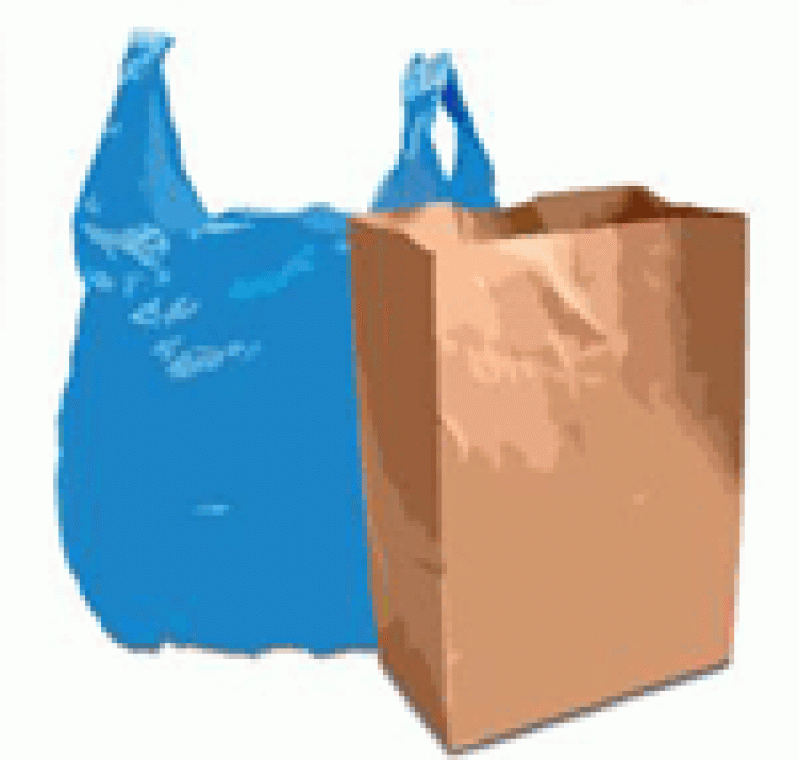DISPOSABLE items made of plastic, including plastic bags, plastic bottles and other poly-based products, continue to pose serious threats to the survival of marine mammals and sea turtles – thousands of which die every year from ingesting plastic materials they mistakenly took for food. Citing The Bahamas as a destination with sordid experiences in this regard, Journalist Cara Byington of the Nature Conservancy, an online publication, writes: “Wayward plastic is becoming a problem for marine mammals and sea turtles in the Bahamas.”
To substantiate her claim, Byington graphically presents the example of a sperm whale that died from plastic ingestion in The Bahamas, the skeleton of which is on display in the Bahamas’ Exuma Cays Land and Sea Park.
In 2008, a dead sperm whale surfaced near Point Reyes, California. “In its stomach was an astonishing 450 pounds of fishing net, some kind of mesh, braided rope, plastic bags, and one plastic comb,” the author wrote.
To compound dangers associated with the practice of having plastics and other trash getting into our waterways, Byington told of seven sperm whales having been washed up on an Italian beach last year – all dead after eating plastic they thought to be squid, and other debris like rope, tin, cans and other containers, which were found in their stomachs.
The Nature Conservancy highlighted common examples of trash appearing in waterways and being eaten by marine animals as plastic bags, plastic cups, plastic sheeting, plastic bottles, and plastic toys.
Byington told of the existence of a patch of Pacific Ocean — thought to be at least the size of Texas — dubbed the Great Pacific Garbage Patch. That is, in effect, just plastic and other trash bobbing along at the surface, circling in the current,” she outlined.
Amidst such chilling revelations, the author added: “Plastics aren’t the only problem, just one of the most obvious. All over the world, animals are dying from eating our trash.” This, she said, makes a profound statement about the unintended consequences and unexpected costs of our way of life.
Concerned over such developments, the Nature Conservancy is proposing the introduction of reusable shopping bags as a replacement for plastic bags when shopping. “You can make a difference by using reusable shopping bags instead of plastic bags each time you shop,” Cara Byington advises.
She notes that many companies are working on a new generation of biodegradable plastics that break down quickly and don’t release toxic chemicals.
But while we wait for this to become a reality, increasingly, people are taking along reusable bags when they go shopping, thus cutting down drastically on the use of plastic bags.
The Nature Conservancy, with its theme: Protecting Nature, Preserving Life, has done more work than anyone else to advance conservation around the world, since being founded in 1951.
Meanwhile, here in Guyana, irresponsible disposal of garbage, a great percentage of which is comprised of Styrofoam food boxes and cups, plastic bottles and plastic shopping bags, which are all non-biodegradable items, continues to pose a serious threat to health and the environment.
Accordingly, the National Bureau of Standards has issued a call for businesses to move towards discontinuing the use of plastic, replacing them with environmentally friendly wrapping and packaging materials.
In response, an initiative spearheaded by a group of six environmentally friendly businesswomen is being robustly pursued. Dubbed “The Paper Bag”, it is a project which guarantees wholesaling and retailing of safe, reliable, cost effective paper bags as a replacement for plastics
Launched last month, the local ‘paper bag’ project is expected to get into high gear by the beginning of September, directors say.
‘Paper Bag’ project to come on stream by early September –expected to make vital difference on land and sea
SHARE THIS ARTICLE :
Facebook
Twitter
WhatsApp



.jpg)








